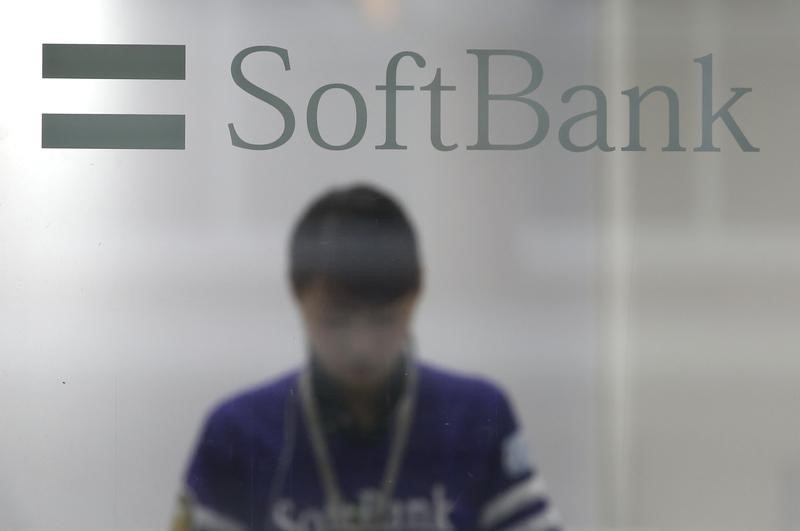This post was originally published on this site
https://i-invdn-com.akamaized.net/news/LYNXMPEA7H0NX_M.jpg © Reuters. Data’s the secret weapon for Rappi, SoftBank’s big bet in Latin America
© Reuters. Data’s the secret weapon for Rappi, SoftBank’s big bet in Latin AmericaBy Daina Beth Solomon
MEXICO CITY (Reuters) – “We’re going to help you understand your missed opportunities,” the boss of delivery app Rappi tells restaurants and food brands. “Why Wednesday is maybe not the best day for you, or why lunch is better than dinner.”
Sebastian Mejia’s pitch might seem bold for a delivery firm but it helps explain why Rappi is spending heavily on a lightning expansion across Latin America. It is quietly building up the firepower of its secret weapon: data.
The company, whose couriers’ orange backpacks have become familiar features of cities like São Paulo, Bogota and Mexico City, has yet to make a cent of profit after five years.
However, three executives told Reuters that, behind the scenes, Rappi was gathering shopper and sales data that is coveted by consumer brands ranging from food group Nestle (S:) to beermaker Anheuser-Busch InBev (BR:), as well as restaurants, supermarkets and stores.
The company’s rapid expansion could be a high-risk strategy, though, and relies on keeping cash flowing from investors until profits materialize.
“Part of the vision of Rappi is to build an ecosystem,” 35-year-old co-founder Mejia told Reuters in an interview. “It’s much more than a delivery company.”
The startup, which is valued at an estimated $3.5 billion and backed by Japan’s SoftBank (T:), has swept across nine countries since 2015. It delivers everything from groceries and restaurant food to medication and furniture, and has branched out into scooter rental, travel and basic banking services.
Every transaction generates data about shoppers such as where they live, what they want and when they need it. Rappi is looking to lure more and more people to the app, a move that would further enrich its data.
Rappi does not hand over individual customer data to its merchants but instead looks at shopping trends, Mejia said.
The firm next plans to push into more cities across Latin America that have at least 500,000 people, while working on adding more digital banking services, added Mejia, who is from Colombia. The startup has yet to expand deeply into Central America.
‘VERY EARLY IN THE GAME’
Gabriel Simões, tech research analyst at Itaú BBA in São Paulo, said the jury was out on Rappi’s plan to launch a swathe of services at once in its bid to quickly gain users, rather than focusing on just one core offering, like bringing you lunch.
“They’re trying to try to lock more users into their platform,” he added. “It could play out well. But it’s very early in the game to make sure this is the best strategy or not.”
It’s not going to be easy; Rappi faces stiff competition in Latin American deliveries from global players Uber (NYSE:) and Didi Chuxing, as well as a host of local apps like iFood and Cornershop, all trying to eat each other’s lunch.
Rappi has an average of more than 10 million active users monthly, according to research firm Apptopia, and says it provides deliveries for almost 100,000 businesses.
Some industry experts raised concerns about the startup’s high cash burn and need for fresh funding to maintain its growth. They said Rappi may find it difficult to wean users off the big discounts and promotions it is offering to win them over, which can hinder profitability.
A lunchtime delivery of soup, tacos and a burrito in Mexico City may cost 319 pesos ($16.80), for example, but can end up at just 40 pesos after factoring in offers. Rappi also sends coupons via text, offering deals like 30% off alcohol between 5 and 11 p.m.
Some merchants, meanwhile, said they were reluctant to rely too heavily on Rappi in case the startup failed and that they were looking at developing their own delivery apps.
‘NO CHOICE BUT TO KEEP GROWING’
SoftBank invested close to $1 billion in Rappi last April, making the app its biggest bet in Latin America. There is pressure on the Japanese investor to make Rappi a success following steep losses at two of its other big investments, WeWork and Uber.
SoftBank declined to comment on Rappi’s strategy.
Rappi’s data can help consumer brands as well as the restaurants and grocery stores that sell directly on the platform, according to Luis Techera, head of strategic partnerships for the app in Mexico.
If Gillette, for example, wants to launch a new razor, it can have Rappi send 100,000 samples to people aged between 27 and 35 years old who live in certain neighborhoods.
“Rappi can deliver them in a week to all the users who already bought a Gillette razor, and that’s an attack that nobody has,” Techera said.
Nestle credited Rappi’s data for allowing it to analyze shopping habits, from groceries and pharmacies to restaurants.
“Rappi has no choice but to keep growing. We see Rappi as a vehicle that will keep helping the development of e-commerce for groceries,” said Luis Macin, Nestle’s vice president of e-commerce in Mexico.
Asked how soon Rappi would turn a profit, Mejia said his priority was to grow fast, and that investors were on board with the plan.
“I want to get to as many consumers as possible,” he said. “I’d rather invest in that than focus on short-term goals or short-term profitability.”
Hendrick Lee, managing partner of Palm Drive Capital which has invested in Rappi, said the startup’s spending made sense in its quest to attract the masses.
“I understand why Rappi is burning large amounts of money to get there,” he added.
($1 = 18.9700 Mexican pesos)

